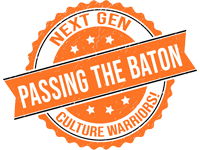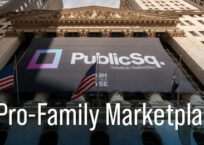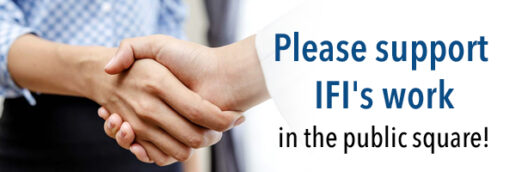
June is Pride Month.

And the city of St. Louis takes great delight in its “Pride” events. Every year, the midwestern metropolis hosts a “PrideFest,” which has been dubbed one of the city’s “signature events.”
As it attempts to draw awareness and support to the “historically marginalized” LGBTQIA+ community, the fest is set to feature locally, nationally and internationally recognized performers (see here for last year’s lineup), dancing and music, and a sizable collection of vendors, etc. As ExploreStLouis.com explains, “it’s a time when we can celebrate, support and uplift each other.”
But that’s not all—PrideFest’s capstone event is the Grand Pride Parade. This year, the parade is planned to be a 10-block-long procession, backdropped by the beautiful Gateway Arch, running through the heart of downtown.
The procession’s goal is twofold: first, to display the creative gifts of LGBT-friendly businesses and community members, and second, to help legislators and candidates showcase their affirmation of LGBT values and communities.
But that’s not all, either—the Grand Pride Parade has sponsors. Take a look at the parade’s webpage: underneath the title, in font almost as big as the parade heading itself, one sponsor’s logo is prominently emblazoned: “Presented by EdwardJones.”
The St. Louis-based financial services firm (EJ hereafter), operating in more than 15,000 locations in the U.S. and Canada, is proud to be sponsoring the Grand Pride Parade.
This is not EJ’s first support of PrideFest; the firm earned shout-outs for sponsoring PrideFest last year and was involved with the festival as long ago as 2018 and earlier. The firm’s reputation and financial support have been paired with St. Louis’s gay celebrations for quite some time now.
What can conscientious consumers—especially those who believe biblical morality—do when large companies with whom they do business begin supporting immoral causes? On the one hand, it can sometimes make sense to hold your nose, focus only on business concerns, and carry on your transactions with a less-than-righteous company—all the while reminding yourself that you’d jump at the chance to do the same business with a more morally-aligned firm.
That may very well be what Paul had in mind in 1 Corinthians 5, when he clarified that his warnings against associating with the sexually immoral did not refer to unbelievers—if we Christians really were to distance themselves from every unbelieving idolater, we would have to leave this world altogether (1 Corinthians 5:9–10).
If we were to stipulate that every company we do business with be aligned with biblical morality, we’d essentially need to withdraw from the world economy. Sometimes, holding one’s nose is necessary.
But it might not be as necessary as we might think.
Often, we individual consumers tend to underestimate our own power as a collective consumer. The reason manufacturers have (mostly) stopped producing flintlocks, typewriters, and floppy disks is because consumers stopped buying them.
It’s that simple.
Even the largest businesses (in the absence of government intervention—a whole different story) only have power insofar as consumers give them money. Take a look at how Bud Light’s sales plummeted after their recent marketing stint with trans influencer Dylan Mulvaney. Shortly after the marketing campaign, sales were dropping by 11% one week, then 21% the next, then 26% the next!
Not even the U.S.’s most popular beer is immune to the power of consumer criticism.
If you don’t like a business’s product—or its ethical standards—don’t buy the product, and the business loses its power. Some nose-holding might be necessary sometimes, but deliberately sniffing, putting your wallet back in your pocket, and walking away—along with 10 million other people—might very well be the more effective way to deal with the problem.
In a way, your dollars are your votes.
In an unholy world, you’ll sometimes need to vote for a less-than-holy product.
But as a holy voter, your votes should always ultimately further holy ends.























